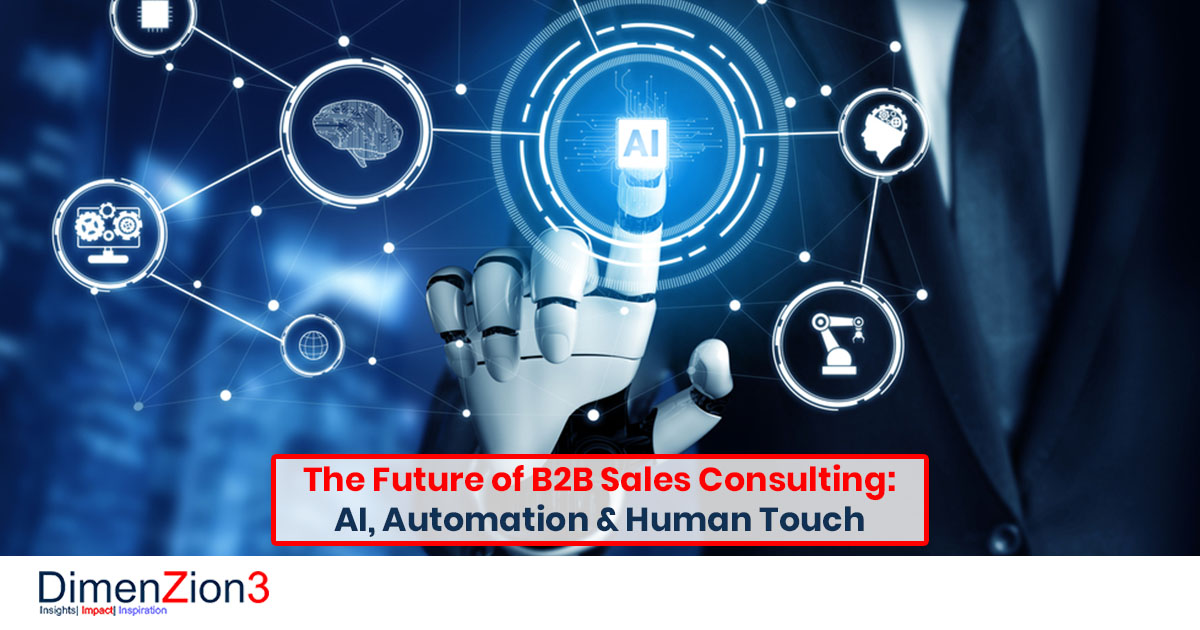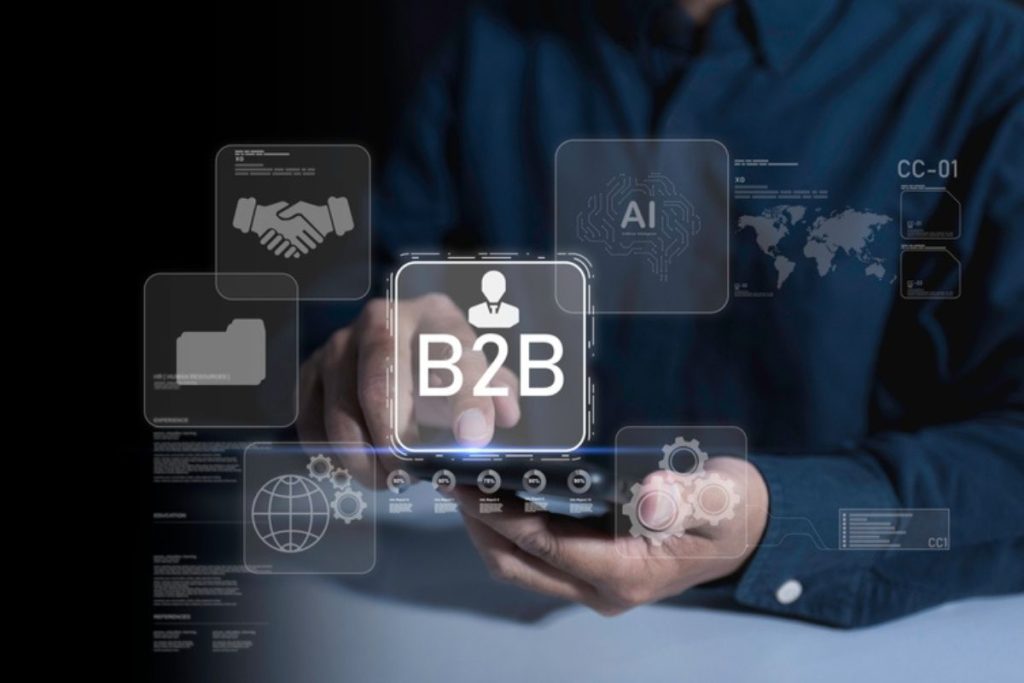The Future of B2B: Using AI Automation to Drive Success
The landscape of B2B is moving as companies increasingly turn to AI automation for critical advantage. This change guarantees to improve performance and consumer interaction through advanced modern technologies. The assimilation of these tools is not without its challenges. Understanding exactly how organizations can browse this developing surface will be vital for future success. What aspects will determine the performance of AI in this industry? The answers may redefine standard service models.
Recognizing AI Automation in B2B
As companies progressively seek effectiveness, recognizing AI automation in B2B comes to be vital. AI automation describes making use of expert system technologies to enhance and improve business procedures. In the B2B market, this involves the combination of AI tools to take care of tasks such as information evaluation, consumer communications, and supply chain operations. By leveraging artificial intelligence and all-natural language processing, firms can enhance precision, decrease human mistake, and speed up decision-making (Minarik AI). AI automation promotes the handling of big volumes of information, enabling services to extract valuable insights and maximize their operations. As companies navigate this technological landscape, an extensive grip of AI automation's capacities will encourage them to stay affordable and receptive to market needs
Trick Benefits of AI Automation for Businesses
While numerous businesses face enhancing operational needs, AI automation provides various benefits that can substantially enhance their efficiency. One significant benefit is performance; AI systems can perform recurring jobs much faster and with greater precision than human beings, therefore decreasing errors and releasing up workers for even more calculated efforts. In addition, AI automation allows data-driven decision-making by examining vast datasets rapidly, offering understandings that educate company strategies. Price reduction is an additional crucial advantage, as automation reduces labor expenses and maximizes resource appropriation. AI can improve scalability, enabling companies to adapt to market changes swiftly. Ultimately, the assimilation of AI automation cultivates technology, allowing business to remain competitive in a quickly advancing landscape.
Changing Customer Experiences With AI
AI is reshaping consumer experiences by enabling tailored interactions and boosting interaction. Via the execution of anticipating analytics, businesses can expect client demands and choices, leading to extra tailored services. Additionally, enhancing support procedures with AI innovation improves performance and complete satisfaction, inevitably changing the overall consumer trip.
Individualized Communications and Engagement
Customized interactions have ended up being a keystone of efficient client interaction in the B2B landscape. By leveraging AI-driven services, organizations can tailor their interaction and offerings to fulfill the special requirements of each client. Automated systems analyze consumer habits, information, and preferences, allowing companies to produce customized experiences that resonate with their target market. This level of personalization not only boosts client fulfillment yet additionally promotes long-term loyalty. Additionally, AI devices assist in real-time communications, permitting businesses to react immediately and successfully to inquiries and responses. Consequently, companies can develop more powerful partnerships with clients, making certain that their solutions straighten with advancing expectations. Ultimately, customized engagement via AI leads to boosted end results and sustained success in the affordable B2B market.
Anticipating Analytics Application
As companies increasingly look for to improve customer experiences, implementing anticipating analytics has actually become an essential approach in the B2B field. By leveraging data-driven insights, organizations can prepare for client demands and preferences, allowing them to customize their offerings better. Anticipating analytics makes use of historic information and advanced formulas to forecast future behaviors, allowing businesses to recognize prospective obstacles and possibilities. This aggressive strategy not just enhances client fulfillment but additionally cultivates commitment by providing timely and relevant remedies. In addition, anticipating analytics assists in resource allocation, making sure that advertising efforts are concentrated on high-value potential customers. Inevitably, the integration of predictive analytics gears up B2B companies with the tools required to change client communications and drive long-term success in a progressively competitive landscape.
Simplifying Support Procedures
Enhancing client experiences in the B2B field expands past predictive analytics; streamlining assistance processes plays an essential duty. By integrating AI-driven solutions, services can automate routine questions and improve action times, bring about heightened customer fulfillment. Chatbots and digital assistants supply 24/7 support, addressing client needs promptly and lowering the problem on human representatives. This automation allows groups to concentrate on complex problems, cultivating more meaningful communications. Additionally, AI devices can analyze assistance information to determine patterns and locations for improvement, making sure continual enhancement of solution quality. As organizations adopt these technologies, they position themselves as receptive and customer-centric, eventually driving loyalty and service development in a progressively competitive landscape.
Simplifying Operations and Processes
Simplifying procedures and processes in B2B atmospheres is essential for boosting total efficiency. By maximizing process effectiveness and automating regular jobs, organizations can minimize manual mistakes and complimentary up useful sources. This shift not just enhances productivity however additionally allows teams to focus on strategic campaigns that drive growth.
Maximizing Process Performance
Enhancing workflow effectiveness is essential for companies seeking to enhance and decrease operational prices productivity. By evaluating existing processes, companies can determine traffic jams and redundancies that impede performance. Executing structured treatments enhances communication and collaboration among groups, guaranteeing that tasks are finished more quickly. Using data-driven insights enables companies to make educated choices that refine operations additionally. Additionally, adopting integrated modern technologies can assist in seamless information circulation, minimizing the risk of delays and errors. As organizations embrace these changes, they not just foster a much more nimble workplace yet also position themselves to respond quickly to market demands - AI Automation For B2B. Inevitably, focusing on process efficiency allows organizations to allocate resources properly, driving long-lasting success in an increasingly affordable landscape
Automating Regular Tasks
Several companies are progressively transforming to automation to deal with routine tasks, identifying its potential to considerably enhance functional efficiency. By releasing AI-driven remedies, firms can simplify repetitive activities such as information entrance, billing processing, and client queries. This shift not only decreases human mistake yet additionally releases up useful worker time, allowing team to focus on value-added jobs and tactical efforts. In addition, automation can boost reaction times and service consistency, resulting in boosted client satisfaction. As organizations browse an affordable landscape, leveraging automation for regular jobs comes to be essential for optimizing operations and maintaining dexterity. Eventually, this approach fosters development and drives development, positioning companies for lasting success in the progressing B2B setting.
Enhancing Decision-Making Via Data Insights

Conquering Obstacles in AI Application
AI execution holds the guarantee of significant functional enhancements, companies typically encounter a myriad of difficulties that can impede progress. Secret barriers consist of information high quality problems, as lots of business deal with inconsistent or insufficient datasets required for effective AI training. In addition, resistance to transform within the workforce can hinder the fostering of AI innovations, as workers may be afraid task variation or do not have the needed abilities. visit the website Budget plan constraints also provide an obstacle, restricting investment in the required framework and ability. Incorporating AI systems with existing procedures can be intricate, requiring substantial time and sources. Getting over these obstacles requires a critical technique that consists of detailed training, modification management, and a commitment to constant enhancement in AI efforts.
Future Patterns: The Next Frontier in B2B Automation
While the landscape of B2B automation remains to progress, emerging fads are positioned to redefine exactly how organizations run. The assimilation of innovative expert system will certainly help with a lot more individualized client experiences, allowing organizations to tailor options specifically to customer requirements. Additionally, the surge of anticipating analytics will certainly enable organizations to prepare for market changes and enhance decision-making processes. Automation of regular jobs through robot procedure automation (RPA) will boost efficiency, reducing operational prices substantially. Furthermore, the adoption of blockchain technology guarantees improved transparency and protection in purchases. As these advancements gain traction, companies will progressively take advantage of AI-driven understandings to promote partnership, improve supply chains, and improve general performance, marking a transformative change in the B2B landscape.
Regularly Asked Inquiries
What Kinds of Businesses Can Profit The Majority Of From AI Automation?
Manufacturing, logistics, and client solution businesses can benefit most from AI automation. These markets improve operational efficiency, decrease prices, and enhance client interactions, inevitably leading to enhanced performance and success in an open market.
How Can Tiny Organizations Execute AI Automation Effectively?
Local business can implement AI automation efficiently by identifying recurring jobs, picking easy to use tools, making certain ample training for staff members, and slowly incorporating remedies to maximize process while checking efficiency and readjusting techniques based on feedback.
What Prevail Misconceptions Regarding AI in B2B?
Common misconceptions regarding AI in B2B consist of the belief that it is only for large enterprises, that it guarantees instant results, and that it can completely replace human decision-making instead of boosting it. Growth Systems For B2B.
How Does AI Automation Influence Employee Roles and Job Safety And Security?
AI automation improves staff member functions by enhancing repetitive jobs, cultivating performance and technology. While some worry task loss, it usually creates possibilities for upskilling and new positions, inevitably boosting task safety and security with added value and productivity.
What Abilities Are Required to Handle AI Automation Projects?

As businesses significantly seek performance, understanding AI automation in B2B becomes crucial. AI automation assists in the handling of big quantities of information, enabling companies to draw out important insights and optimize their operations. While lots of companies grapple with enhancing functional needs, AI automation provides many benefits that can significantly enhance their performance. Automation of regular jobs with robotic procedure automation (RPA) will certainly boost performance, lowering functional costs substantially. Manufacturing, logistics, and consumer solution organizations can profit most from AI automation.